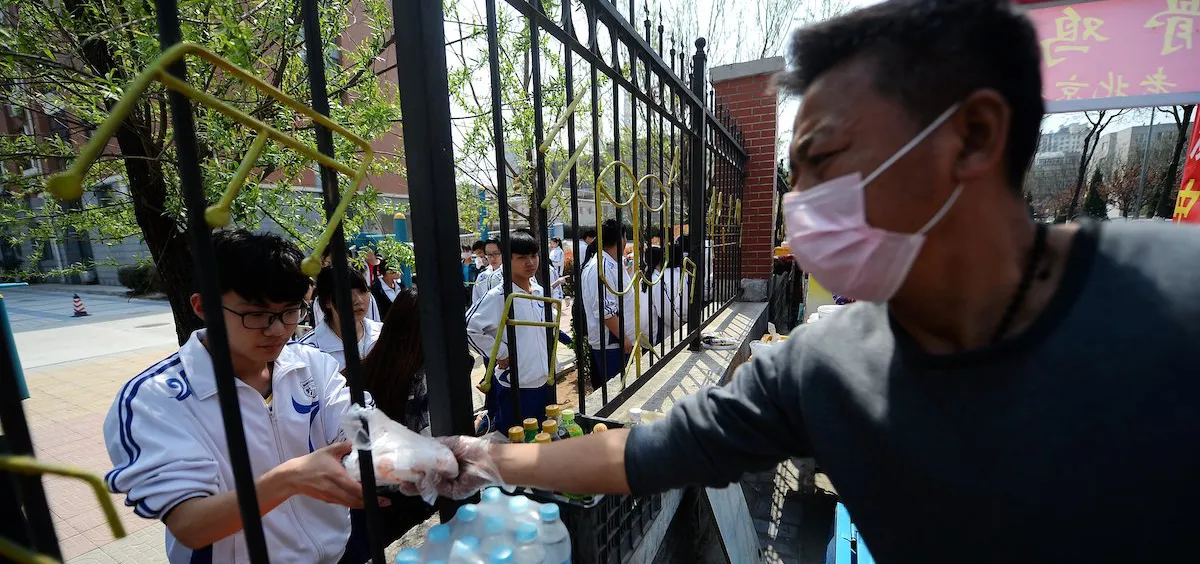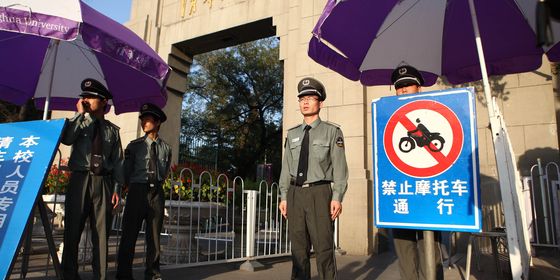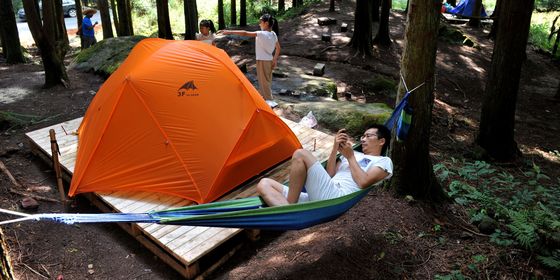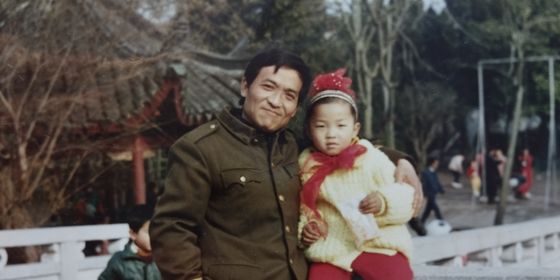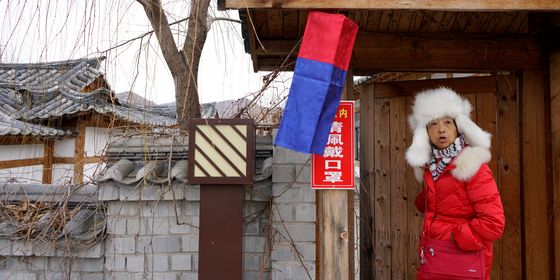Students finally return to school after months at home—to “closed campuses” and other strict rules
On September 5, several students at the Wuhan Institute of Physical Education launched a daring escape from campus by taking a boat across a lake bordering school grounds. The students had been unable to leave the school gates for weeks due to virus prevention measures—and finally snapped.
The students were stuck on school grounds in large part because of a joint directive issued to universities on August 13 by the Ministry of Education and the National Health Commission, which recommended all returning college students to stay on campus at all times to help contain the spread of the coronavirus.
With the phased return of students from low-risk areas for the fall semester, some colleges have implemented controversial lockdown-styled management of campuses, a situation that has angered many students. Although the Covid-19 outbreak in China is largely under control, many students remain trapped on school grounds, with some couples even resorting to having meals through campus gates.
Barricades, uniformed security guards equipped with infrared thermometers outside campus entrances, and mandated self-reporting of body temperature multiple times a day has become the norm for students who are confined to campus except in “special circumstances” (it’s unclear what would qualify).
The hashtag “Should colleges be locked down?” has gained 460 million views on Weibo. In an online survey by China Newsweek, 785,000 out of 843,000 respondents suggested that colleges should not be locked down and that it is pointless to only bar students from leaving campus, while staff members remain free to come and go. Many students have complained that teachers, foreign peers, and other university faculty are exempt from lockdowns—“Do only students use their lungs to breathe?” fumed one netizen on Weibo.
Students have also complained of being ripped off when buying groceries on campus, since they have no option to buy from outside. “A toothbrush cost me 12 yuan and a 1 kilogram bag of laundry detergent 25 yuan,” Wang Yi, a second-year student in Hebei province, told TWOC. “I never thought school life could be this expensive.”
Long queues at the cafeteria are another anoyance, leading to an increase personal contact between students that seems counter-productive to virus prevention. “If one student gets infected, what will happen then?” asks Wang.
Some students even likened the isolated experience to imprisonment. One student complained about being overwhelmed by the frequent mobile health code scanning by dorm supervisors, cafeteria staff, and janitors. “I cannot stand this. I feel depressed every day,” she wrote on Weibo.
Final-year students are particularly affected by restrictions on their movement, since many have internships off-campus and need to attend job interviews.
School officials have also banned delivery workers from entering campus. Zhang, a sophomore at Henan Agricultural University, told TWOC she has to walk about a kilometer to the school gate to pick up deliveries, and sometimes have to queue for hours to collect mail.
Anxious parents are more willing to accept the restrictions put on their children, many of whom are leaving home for the first time. “Although there are few confirmed coronavirus case at home, I still worry [about my daughter catching the virus],” Xie Feng, the mother of a college junior in Tianjin, tells TWOC. Xie feels safer knowing that her daughter can’t mingle outside with her new friends at college.
On August 27, the Ministry of Education responded to criticism of the strict measures by stating that virus management doesn’t imply locking down students, and schools need to treat students and faculty equally. Some unviersities have devised novel ways to at least comfort students trapped on campus—Hebei Art College built an amusement park on campus to relieve students boredom.
Some colleges have started to relax their regulations. For example, since September 11, students at the University of International Business and Economics in Beijing are able to leave campus after they scan a QR code and apply for permission through an online form.
But, many students are still barred from leaving school. “We are expected to be locked up for this fall, well at least for the foreseeable period,” says Wang, who is still stuck on campus waiting for the rules to change.
Cover image from VCG





